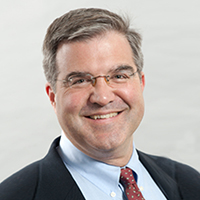CISUR's new Director is here!
 After a lengthy international search, CISUR finally has a new director—and it’s Tim.
After a lengthy international search, CISUR finally has a new director—and it’s Tim.
No, not that Tim. The other Tim.
Dr. Tim Naimi officially started his tenure at CISUR’s new director August 17, having relocated from Boston with his family. He replaces Dr. Tim Stockwell, who was director at CISUR from its inception in 2004 until August 2020. Stockwell will remain at CISUR as a Scientist.
Tim Naimi is a physician and alcohol epidemiologist coming from Boston Medical Center (BMC), and was a Professor with the Boston University Schools of Medicine and Public Health. His research interests mostly lie in substance-use epidemiology, particularly binge drinking and the health effects of moderate drinking, with a recent focus on prevention and effective public policies for reducing substance-use-related problems for alcohol and cannabis.
“My public-health approach to substance use, and alcohol more specifically, really dovetails well with a lot of the work at CISUR,” says Naimi. “I think CISUR is one of the few research institutions in the world that focusses on a public-health, population-level approaches to dealing with substance use and substance-use problems, as opposed to most of the work that is done, which is more clinically oriented.”
Naimi got his first taste of working at CISUR in the fall of 2017 when he came to work at the institute during a sabbatical, where he and his wife and daughters came to Victoria. “I just had a great time. I was so impressed by the intelligence and wit of the group I thought I might try to come back,” he says.
While his first couple weeks on the job are a bit different than they would be in more normal times (he and his family are currently observing the mandatory two-week quarantine due to COVID-19 travel restrictions), he’s excited to join the team and hit the ground running.
“I really think CISUR has made, and will continue to make, a big difference. The Institute leads the way in terms of research that addresses substance-related disparities and vulnerable populations, which in turn will help improve the health and well-being of all people not only in BC, but Canada and the rest of the world.”
